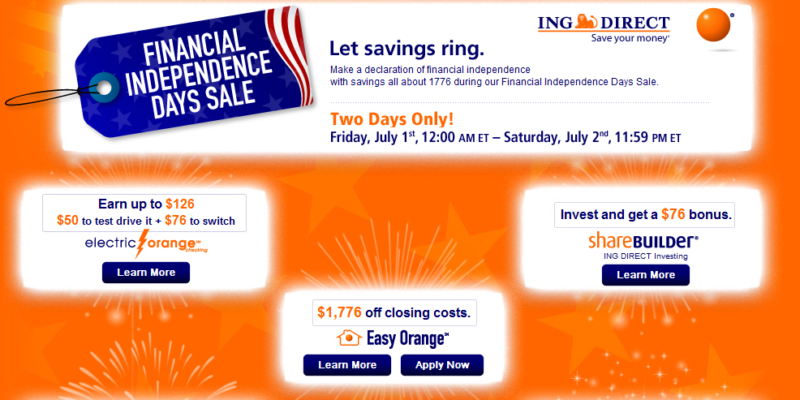There comes a time when it’s too late to tell people how you feel.
There will come a day when the person you mean to talk to won’t be there. Don’t wait for that day.
“There’s always tomorrow” isn’t always true.
The no-pants guide to spending, saving, and thriving in the real world.
I once worked for a company that was so confused that, not only did I not meet my last immediate supervisor for 6 months, but he didn’t know what I did or who I supported. He was my supervisor on paper for payroll and organizational purposes only.

Does your boss know what you do?
More recently, I was called into my current boss’s office to get scolded for low productivity since I don’t produce as much as the other programmers.
That’s not my favorite thing to do in the afternoon. I’d rather spend the afternoon playing Angry Birds improving our software.
In response, I spent the week logging my time. Before I left on Friday, I sent my boss an email that started out with:
When we spoke on Monday, you compared my productivity unfavorably to the other developers. I don’t think that’s a fair comparison as I do more categories of tasks than the others. I don’t think you realize how many additional responsibilities I’ve taken on over the years.
I continued from there with a summary of each day’s work last week. The short version is that, while being productive, I spend less than half of my time on my primary job function because I’ve slowly taken on a managerial role.
I’m on vacation this week, so it will be a few days before I find out if my email will make a difference.
Now, this scolding was my fault. I know I spend my day doing much more than just writing code. I’ve told my boss that before, but I’ve never made sure he understands the scale of the extra work, and I’ve never proven it with a detailed log.
This was poor personal marketing.
In the future, I have to make sure that I keep him in the loop with a summary of the extra work I do, like the training, product demos, sales calls, and estimates I’m involved in.
We’ll see how well that works.
How would you handle a situation like this? Daily emails? Whining? Kicking a garbage can across the room?


I just got an email from INGDirect. To celebrate Independence Day, they are having a sweet, sweet sale.
You can:
Take advantage of all of that and you’ll get $2054 in cash or discounts.
Seriously, this deal rocks. If you don’t have an INGDirect account, get one. There are no overdraft fees and no monthly fees.
The sale ends tomorrow at midnight, so hurry.
HARP Refinance
If you owe more than your house is worth, and want to refinance to today’s low interest rates, you need to check out the HARP program. Millions of homeowners with underwater homes are finding relief in a new version of the Home Affordable Refinance Program (HARP). Refinancing to lower interest rates could slash your monthly mortgage payment or shorten the time it takes to pay-off your mortgage.
The new HARP loosened qualification rules, making it it easier for underwater homeowners to qualify for a refinance. When HARP 2.0 was released in November 2011 you had to work with your original lender. Since March 2012, when Fannie Mae and Freddie Mac rolled out the automated underwriting systems, you can work with any participating HARP lender. That means more competition for your business and better rates for you
HARP 2.0’s Hurdles
There are two series of hurdles you must clear before you can refinance your loan under HARP 2.0. The first set of hurdles concerns the loan itself. The three key eligibility questions are:
If you answer yes to these three questions, then your loan may be eligible for HARP.
Tip: If your loan is a FHA loan, then check out a FHA streamline refinance loan.
The second set of hurdles concerns your finances and property. Fannie Mae and Freddie Mac set up the basic guidelines. There are two basic ways your loan can be processed:
Keep in mind that lenders are free to have stricter qualifying rules than the basic Fannie and Freddie requirements.
When shopping for a HARP loan, here are some of the main points to look out for:
Applying for HARP
First, go to the Fannie Mae and Freddie Mac Web sites to learn if either owns your loan and whether they bought your loan on or before May 31, 2009. If so, you can contact either your current mortgage servicer or shop around with the many lenders who are offering the HARP 2.0 loan.
If your application is rejected, ask for the specific reason why. If you applied with your original lender, find out whether the lender used the manual or automated system. Request manual underwriting if your original lender turned you down based on automated underwriting, as it may result in your loan being approved.
It pays to shop for HARP 2.0 refinance. Many homeowners report one lender will reject their application, but another will offer them an attractive refinance. Second, lenders are not consistent in their offers. As mentioned, closing costs are all over the map. Interest rates vary, too.
Summary
HARP 2.0’s rules are technical. Each lender creates different overlays. If you believe you qualify for HARP 2.0, be persistent! The rules that are in place today could very well be expanded in the future. This is one instance in life where shopping can be the solution to your problem.
As of last Monday, we don’t have any tenants in our rental house.

That makes me sad.
It makes me sadder that we were too nice and gave them an extra week free to get their stuff moved out.
Now we get the fun job of painting, replacing the linoleum, and probably cleaning the place up to get it ready for new renters that we haven’t found yet.
New renters.
Ick.
Now, we could put an ad on Craigslist and try to find renters ourselves.
Background checks.
Credit checks.
Interviews and walk-throughs.
Then, when we find someone, we’ll be collecting rent and dealing with any whiny issues that come up.
Yuck.
Or….
We can hire a property manager. The big name property management company in our area charges a $99 set-up fee plus $80 per month.
That covers:
If we add on the tenant-finding service, we’ll be paying them one-month’s rent, but they’ll handle the showings, advertising, background checks, and the lease. And their average tenant placement is 19 days. Another house in the neighborhood that used them had the house rented in about a week.
That moves our landlording firmly into the passive side-hustle category and all it costs us is (essentially) one and a half month’s rent with the added bonus that we’ll be asking the right amount for rent according to the market, instead of guessing. Our last tenants were probably paying $300 too little.
I think the property managers are the way to go, but I have absolutely no experience here.
Have any of you used a property manager? Was it good? Bad? Hell-on-Earth?